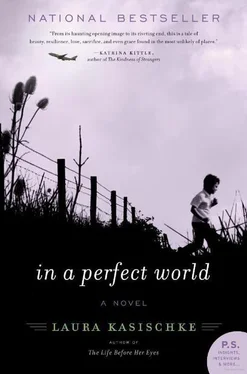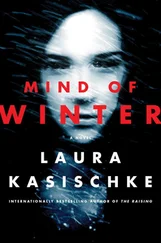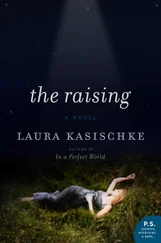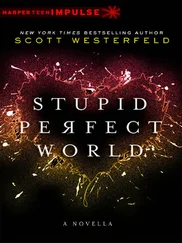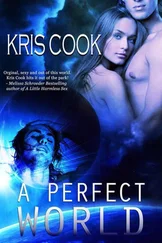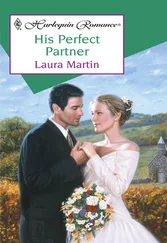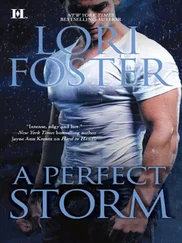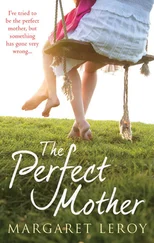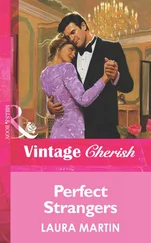“We’ve got to blame something for the Phoenix flu,” Paul Temple said. “We’re like the flagellants during the Black Death. What we’re whipping is ourselves. We’re not a God-fearing society, so if it isn’t God who’s punishing us for our sins, it must be the environment punishing us for our gas-guzzling vehicles.”
That afternoon, Paul had walked over to get his Saab back, but Bobby and Camilla had already taken it out again to pick up some things for dinner, so Jiselle invited him in, offered him a beer. The electricity had been on solidly and without interruption for four days, so the beer was cold. He took the bottle gratefully and settled into a chair on the deck, gazing out at the ravine, which was still glistening and dripping from the rainstorm earlier. The air was warm and humid. Paul Temple was flushed. His forehead was beaded with sweat. He leaned on his elbows with the bottle of beer on the table between his arms and held his head in his hands.
“It’s a secular society,” he went on, “so it’s not God; it’s global warming. But it’s the same idea. The idea is that we brought this on ourselves. That cult in Idaho, the one where they all killed themselves to erase their carbon footprint—that could be straight out of the Middle Ages.”
Jiselle had seen photos of the cultists—more than a hundred dead men, women, and children in rows in their compound outside of Boise. They had all had white sheets pulled up to their chins, and their bare feet dangling from the ends of their cots. Such organized mania, she’d thought, looking at the photographs on CNN. How had they managed it?
Paul looked up at Jiselle and said, “These are strange times.”
Jiselle nodded. She saw bewilderment and despair in his expression, which she felt sure had to do with his wife, Tara. That day at the bank returned to her. She was afraid she might betray her own knowledge then, and looked away. Overhead, she heard a plane and looked up to see a pinwheeling bit of silver in the haze. Not a commercial airliner. Those had been grounded for good in the last two weeks. It was, instead, one of the small, fast military or corporate jets that had been crisscrossing the sky lately—quiet and suspiciously high, gone in a blink, although Jiselle continued to stare at the silver spinning place it had been until the sun in the haze over the treetops appeared to double itself.
That afternoon, Jiselle realized they were low on everything. The milk was gone. One of the children had used the last of it and put the empty carton back in the refrigerator. The peanut butter was mostly gone, and there was a green spot of mold on the last slices of bread in the Wonderbread bag.
Outside, Bobby and Paul were hauling bricks, placing them in careful rows beside one another, while Sam ran back and forth from the deck to the edge of the ravine, occasionally flapping his arms. Jiselle called to Sara and Camilla, “Anyone want to go to the store?”
They both did. It had already become a rare treat to go into St. Sophia. Gas was eleven dollars a gallon, and they were trying to conserve what was in the car for emergencies.
They drove in Mark’s Mazda—Camilla beside Jiselle, Sara in the backseat. Jiselle put the top down, for the hard breeze of it, and turned the radio on to the oldies station—happy, stupid songs about being a teenager in a perfect world. Even the car crashes in that world seemed safe, predictable. There were never any special announcements on the oldies station. The only chatter was about a contest in which the naming of a songwriter could win you a thousand dollars. Sara and Camilla nodded along to the songs, seeming content enough. “Take a Letter, Maria.” “Hey There, Lonely Girl.”
Although it had been dry, the rains had been relentless the month before, so the flowers were as vivid as Jiselle ever remembered them. Along the side of the road the wildflowers waved their caution-yellow faces at the sun. Red-winged blackbirds darted among the blooms and grasses, landing on long blades, not even bending them, appearing to be weightless. Butterflies and moths swarmed around the purple-blue of cornflowers. The Queen Anne’s lace made a webby froth in the ditches.
Sara let her elbow rest on the car door and opened and closed her fingers in the wind as the car flew through it, as if she were trying to hang on to the air. Camilla leaned her head back on the seat and closed her eyes, her face lit up by the sun. Jiselle watched the road in front of her spinning out like a black ribbon. There were almost no other cars on the road.
“If you don’t want to hear the bad news out there, folks, you’ve finally found the right station!” a man with a deep voice, which managed to sound girlish in its excitement, shouted over the radio. “We’re just playing music and telling really stupid jokes!”
When Jiselle finally reached the edge of St. Sophia and pulled up to the Safeco, the parking lot was nearly empty. There were just a few small cars parked at the edges—employees’ cars? A couple of motorbikes were on the sidewalk outside the store, and an empty wheelchair, looking abandoned, sat by itself next to the Dumpster. There was one truck parked out front, and a man in a blue shirt was tossing crates out of the back of it onto the pavement. He didn’t look at Jiselle and the girls when they passed by, but after they’d already started to pass through the automatic doors, Jiselle heard him mutter, “Hot babes,” as if it were an accusation. When they were on the other side of the doors, which had closed, Jiselle looked back.
The man had a wild black beard and bright blue eyes. He was staring at her with his chin lifted. She turned away again fast.
Inside the supermarket, Sara and Camilla parted, heading down different aisles, pushing their separate carts. Jiselle took a red plastic basket and said, “Let’s not forget to get Saltines and 7-Up for the Schmidts.”
Saltines and 7-Up seemed to be all Mr. and Mrs. Schmidt ate. It was the only item from the store they ever requested when Jiselle offered to pick something up for them.
What were they living on otherwise?
They never took their car out of the garage anymore, but they looked healthy enough. Like the water Mr. Schmidt said he had, did he also have a stockpile of food? Was he setting traps—eating possum, squirrel? There were apple trees in his backyard, but they had only just begun to grow small, hard fruit. Even if he’d managed somehow to plant a vast vegetable garden, not much could have come up there yet either.
Jiselle would buy them, she decided, some cans of tuna and sardines, if there were any, but she went to the cracker aisle first to get the Saltines, which were plentiful and light to carry in her basket. She took two boxes and moved on.
Freshly mopped, the floors of the grocery store were wet and streaked, but there seemed to be no one working there except for one girl behind one cash register. Many of the things Jiselle wanted—eggs, fresh vegetables, and fruit—lay behind the glass doors of the padlocked freezers or under the heavy yellow contamination cloths. Still, there seemed to be more things on the shelves that afternoon than there had been the week before, when they were still cordoning off the bakery aisle. Now, some of the bread was moldy, but Jiselle found the best loaf she could and put it in her basket. And she was glad to see that there was milk. Many gallons of it. And cheese. And even yogurt, which she’d been learning to live without but still loved. She was happy, passing the displays of canned soup and stuffing mix, to see the plenty. There was still more than enough in the grocery store to feed them for months— years —if need be, until the energy crisis ended and normal shipping routes were reopened.
She tracked down peanut butter for Sam, Frosted Flakes. She shook the box just to hear the flakes inside. Sam would be so happy about the Frosted Flakes. She took the last box of Raisin Bran off the shelf, too, but put it back when she saw that the bottom had been ripped and the waxy pouch inside was open. She picked up a box of Pop-Tarts instead.
Читать дальше
